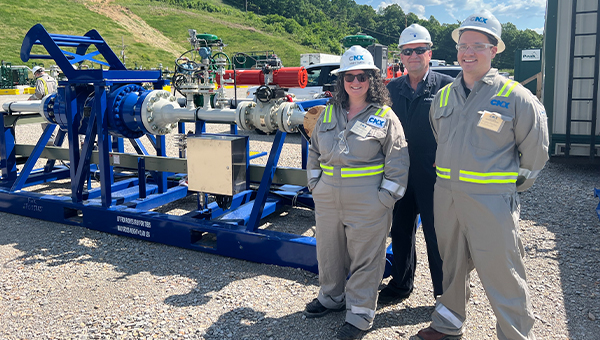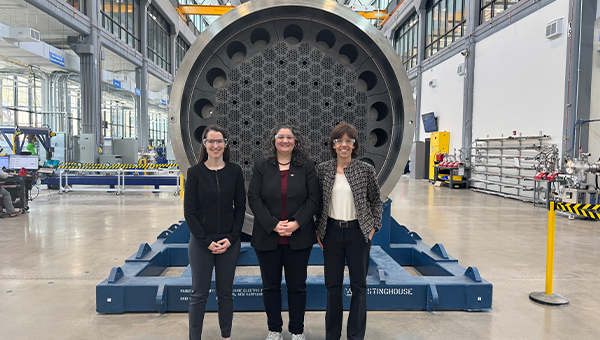Heinz College Alumna Abby Smith Works the Intersection of Energy Policy and Economic Growth
In a political climate often defined by division, Abby Smith (MSPPM ‘08) has built her career on a different principle: collaboration. As president and CEO of Team Pennsylvania, Smith leads the nonprofit, nonpartisan organization that serves as a neutral convener among leaders in government, business, and academia, working together to strengthen Pennsylvania's economy.
That collaborative approach is essential in the energy sector, where Pennsylvania sits at the center of America's power grid and the nation's energy transformation. The state currently ranks as the second-largest net supplier of energy in the nation. Pennsylvania is also a major producer of natural gas, nuclear power, and coal.
“We are a crucial energy supplier to our region, to the nation, and to the world in a lot of different respects,” Smith said. “Right now, we're at an inflection point with energy and thinking about our energy economy.”
Building Pennsylvania’s Energy Future
Team PA is a statewide entity co-chaired by the sitting governor and a private sector leader.
“Our nonpartisan role allows us to think about how we move from one administration to the other, to play the long game when the system isn’t always set up to incentivize that. We’re the long-term stewards of Pennsylvania’s economy, and at our core, it’s all about collaboration,” Smith said.
As the nation transitions to newer, cleaner forms of energy, Smith said Team PA is optimistic about nuclear energy. The state is a longstanding leader in nuclear power, with deep expertise and potential across the full value chain—from research and development to skilled workforce and physical infrastructure. Smith sees “ample upside potential” for Pennsylvania to maintain and expand that leadership, particularly as the next generation of nuclear technologies begins to take shape.
Team PA is coordinating a nuclear supply chain analysis, bringing together partners from government, academia, and industry to identify vulnerabilities and opportunities in the state. This analysis, Smith said, is intended to help Pennsylvania stake its claim as a leader in the future of nuclear energy. The goal is to generate reliable, actionable intelligence, allowing stakeholders to build what Smith calls “a coalition of the willing” to move forward together.
“Our hope is to start with the sharpened intel, so that we're really well-informed on exactly how Pennsylvania should show up and be a leader in this space,” Smith said. “That requires us all to get on the same page and take that big leap forward together.”


